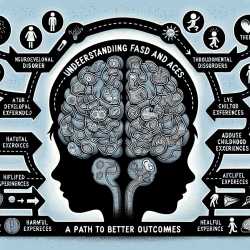Introduction
Niemann-Pick Disease Type C (NPC) is a rare genetic disorder characterized by the accumulation of lipids in the lysosomes due to mutations in the NPC1 or NPC2 genes. This condition leads to a range of symptoms from neonatal liver disease to adult-onset neurodegenerative disorders. The rarity of NPC often results in misdiagnosis and delayed treatment, impacting the quality of care patients receive. Recent clinical guidelines aim to standardize care and improve outcomes for NPC patients globally.
Key Takeaways from the Guidelines
The "Consensus Clinical Management Guidelines for Niemann-Pick Disease Type C" provide a comprehensive framework for practitioners to enhance their care for NPC patients. Here are some essential insights:
- Standardized Care: The guidelines emphasize the importance of a multidisciplinary approach, involving neurologists, geneticists, and other specialists, to provide comprehensive care for NPC patients.
- Early Diagnosis: Early detection is crucial for improving patient outcomes. The guidelines recommend using a combination of clinical assessments, biomarker testing, and genetic analysis to confirm NPC diagnoses.
- Symptomatic and Supportive Therapy: While there is no cure for NPC, symptomatic treatments and supportive therapies can significantly enhance the quality of life. The guidelines detail specific interventions for managing symptoms like cataplexy, cognitive decline, and mobility issues.
- Disease Modifying Therapies: Miglustat is currently the only approved disease-modifying therapy for NPC in the European Union. The guidelines provide criteria for initiating this therapy and discuss its potential benefits and limitations.
- Research and Future Directions: The guidelines identify gaps in current knowledge and encourage further research to develop new therapies and improve diagnostic methods.
Implementing the Guidelines in Practice
Practitioners can improve their skills by integrating these guidelines into their practice. Here are some steps to consider:
- Stay Informed: Regularly review the latest research and updates on NPC to stay informed about new diagnostic tools and treatments.
- Collaborate with Specialists: Establish connections with NPC specialists and genetic counselors to ensure a coordinated care approach.
- Educate Patients and Families: Provide patients and their families with resources and support to empower them in managing NPC.
- Advocate for Research: Encourage participation in clinical trials and research studies to contribute to the advancement of NPC knowledge and therapies.
Conclusion
The implementation of these guidelines represents a significant step forward in the care of NPC patients. By following these recommendations, practitioners can provide better, more equitable care, regardless of geographical location. For those interested in delving deeper into the research, the original paper offers a comprehensive overview of the guidelines and their development.
To read the original research paper, please follow this link: Consensus clinical management guidelines for Niemann-Pick disease type C.










